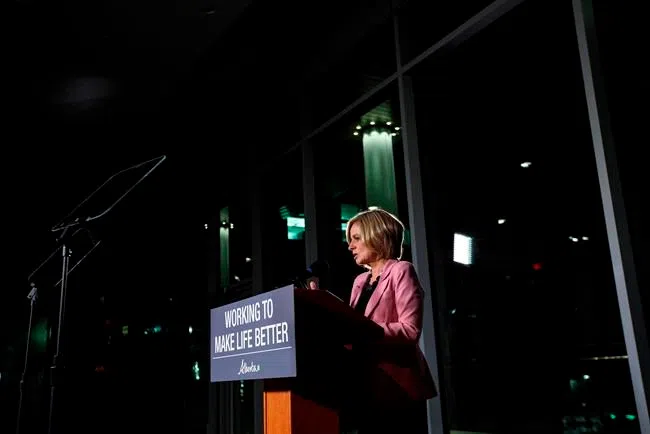
Alberta orders 8.7 per cent oil production cut to help deal with low prices
EDMONTON — Premier Rachel Notley is ordering a mandatory cut to oil production to deal with a price crisis she says threatens to gut Alberta’s bedrock industry.
Notley announced the province will impose across-the-board cuts amounting to 8.7 per cent of output to reduce a growing glut of oil that is forcing Alberta oil to sell at steep discounts compared with the North American benchmark.
“In the last few weeks, this price gap has reached historic highs,” Notley said Sunday in a speech timed to run live on supper-hour newscasts in Alberta.
Roughly speaking, Notley said, while the rest of the world sells its oil at about $50 per barrel, Alberta fetches only $10.
